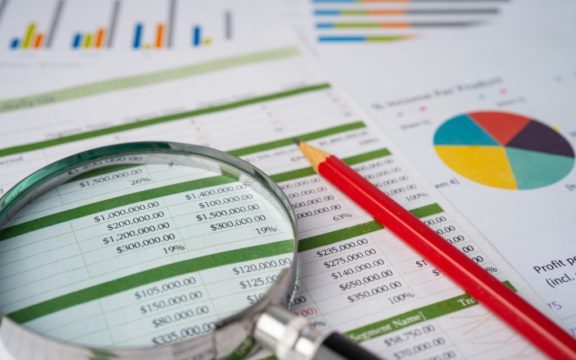Accounting and bookkeeping are two financial terms that are usually used interchangeably in the business world. These are two functions that are highly essential for every business organisation. Accounting is the recording, analysis, and summarization of financial data. Bookkeeping, on the other hand, is the recording of all financial transactions into a ledger.
Accountants and bookkeepers each play a role in managing business organizations’ finance They achieve their roles via different paths. In this article, we will reveal the difference between accountants and bookkeepers. Continue reading to find out.
The Difference Between Accountants and Bookkeepers
Accountants are charged with the responsibility of gathering, storing, analyzing, interpreting, and summarizing the financial data included in the ledger. They do this to be able to evaluate the overall business performance. Bookkeepers own the task of identifying and recording financial transactions in the ledger, which an accountant can then use to evaluate business performance.
The business’ stakeholders can only evaluate performance and make critical decisions based on the analysis and data provided by the accountant. Management cannot make business decisions from the data provided by only a bookkeeper, as there will not be enough information.
An accountant analyzes the financial data of a business organization and compiles it into reports. Stakeholders will be able to make decisions based on this business performance. Bookkeepers do not analyze financial data; they simply input them into the record book.
In every business organization, accountants are required to acquire sufficient experience and formal education. You cannot be an accountant without a professional degree in accounting. They are required to be sticklers for accuracy and possess adequate analytic skills and knowledge of financial topics for the accounting complexities. More so, they are expected to be able to advise on tax matters. Bookkeepers are not required to have a formal education. No special skill is required, but they must have enough knowledge of financial topics to understand the numbers and the job responsibilities.
Accountants are seen as overseers of the entire accounting process – ensuring that the entire business performance is in order. Bookkeepers often require their assistance to handle the recording of financial transactions and to review their work. An accountant can also be a bookkeeper, but a bookkeeper cannot be an accountant.
In the recording of financial data, accountants use various tools such as balance sheets, cash flow statements, or other enhanced tools such as accounting software. Bookkeepers use journals and ledgers to record financial data.
The bookkeeper monitors transactions going in and out of the organization, processes payroll, and sends invoices to vendors and customers.
In the execution of their duties, accountants engage a high level of complexity. They do this utilizing their experience and analytic skills. Bookkeepers do not engage a high level of complexity, only recording financial details with no analysis. This is because they do no analysis, only their task of recording financial details.
Accountants engage in several categories during accounting. They include cost, financial, management, and HR responsibility. They specialize in one to ensure that the financial management of a business is done properly and efficiently. Bookkeeping only has three categories, single entry, double entry, and virtual.
In summary, the activities of accountants and bookkeepers are:
Accountants
- Creation and management of financial statements
- Analyzing, interpreting, and summarizing financial details
- Preparation of tax documents and estimation of taxes
- Keeping the business organization in compliance with financial and tax rules to avoid a run-in with the law
Bookkeepers
- Preparation and sending of invoices to customers and vendors
- Recording and processing of invoices
- Recording of payments made to vendors and payments made by customers
- Processing of payroll
- Categorizing of debit- and credit-related expenses
- Monitoring and recording of late payments
Final Thoughts
Ensuring that the financial records are well-handled and financial reports are accurately and effectively made out of them to influence future management decisions is key to attaining any business’s long-term success. Certain business owners manage the finances on their own. However, they can often achieve better financial management by employing the services of accountants and bookkeepers.
With the manifestation and advancement of the technological accounting system in Malaysia, business accountants can handle financial management even more efficiently. Whichever you choose, bookkeeping or cloud accounting software, you are making a vital decision that will spur your business’s growth.

















